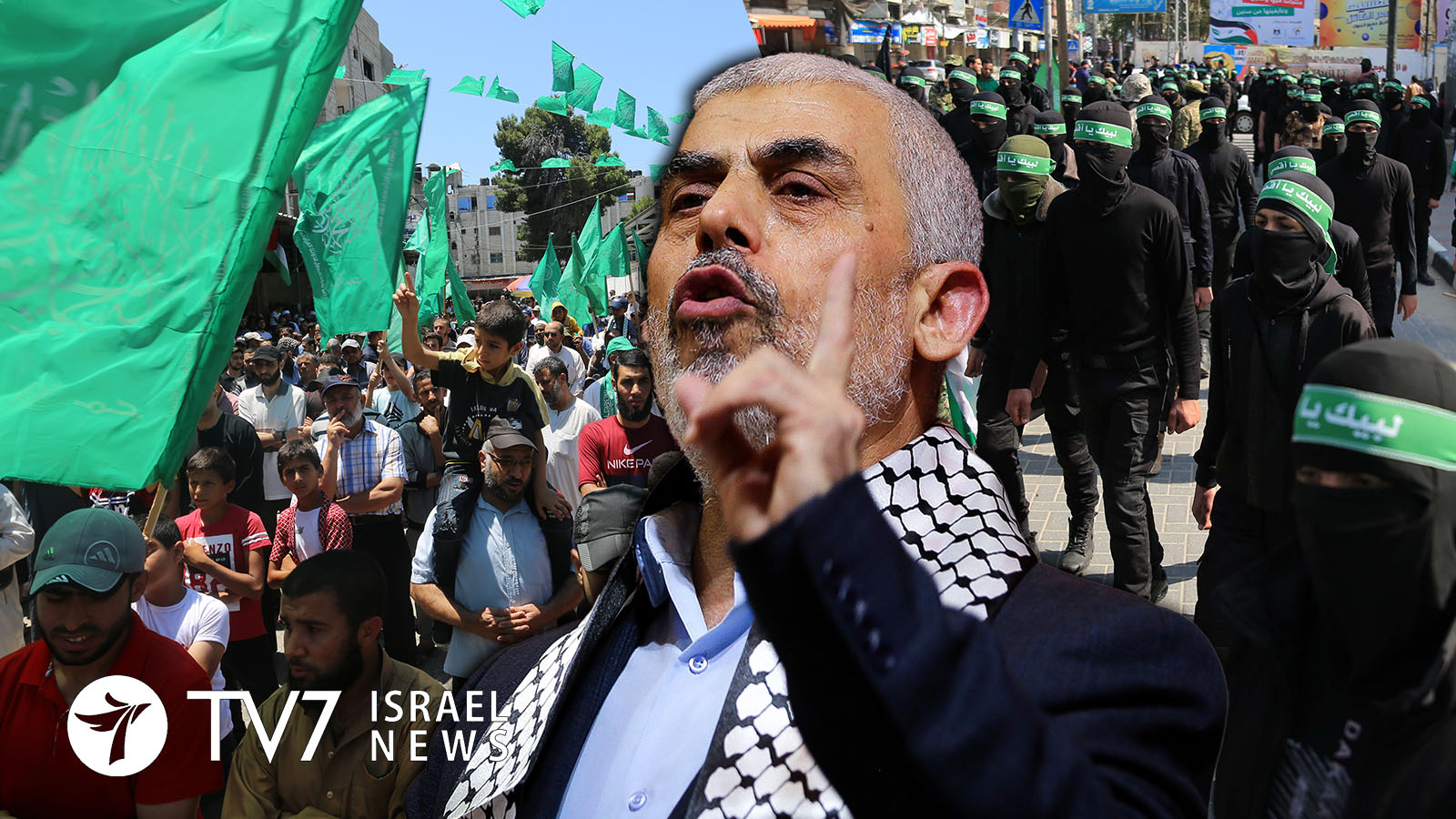After an unexpectedly tight race, Yahya Sinwar has been re-elected to head Hamas in the Gaza Strip.
Balloting for Hamas leadership is supposed to be held every 4 years, although the last vote was held in 2017. At that time, Sinwar became the de facto leader of the Palestinian enclave as head of the Gaza office when he replaced Ismail Haniyeh, who in turn assumed the position of Hamas political chief Khaled Mashaal – who had been in power since 1996.
The terror group’s 320-member, quasi-legislative Shura Council holds clandestine internal elections that can often take months. Winners are declared by a simple majority vote.
The 58-year-old Sinwar was unable to garner more than 50% support after 3 separate rounds of voting on Tuesday, but emerged victorious in a 4th ballot yesterday.
According to a statement by Hamas spokesperson Hazim Qasim, Sinwar’s term in office will end in 2025.
While he supports Hamas’ opposition to co-existence with Israel, Sinwar has maintained a relatively stable standoff across the Gaza border. His Islamist group waged no major wars with Israel during his first tenure, although standard of living conditions for the estimated 2 million impoverished Palestinians living under his rule have further deteriorated.
Sinwar is a former commander of Hamas’s military wing, known as “the Butcher from Khan Younis” for murdering so-called Palestinian collaborators with Israel. He was sentenced to four life terms in Israeli prison in 1989 for involvement in the abduction and killing of 2 IDF soldiers, but released in 2011 as part of the prisoner exchange deal for captured IDF Sgt. Gilad Shalit.
Longtime Hamas official Nizar Awadallah, who was Sinwar’s main challenger in the election, played a key role in that same prisoner swap. The former Shura Council head is a member of the Hamas politburo, reportedly close to former Hamas political bureau chief, Khaled Mashaal, as well as the late Hamas founder Sheikh Ahmad Yassin.
Following his defeat, Awadallah released a statement of support for Sinwar, saying, “We stand by his side in every position to achieve the goals of our project and our movement.”
Gaza political analyst Adnan Abu Amer told Reuters that, “Sinwar’s victory shows the man maintains a strong grip on things inside the movement, especially within its vital components such as the military wing,” adding that, “The win will enable Sinwar to pursue his policies, whether inside Gaza or with regional countries and the handling of the conflict with Israel.”
After a post-election victory meeting with Awadallah, Sinwar declared that he had been “given a mission,” adding, “We are soldiers and not people looking for positions.”
“We tell the Palestinian people that we will be at their service and do our best to achieve our great national goals – liberation, return, unity, partnership and protecting the rights of the people so that they can have freedom and a dignified life,” he said.
Meanwhile, Hamas has yet to elect a leader for the West Bank, which is controlled by its bitter Fatah rival. Sources say the candidate’s identity would be kept secret as protection against the administration of Palestinian President Mahmoud Abbas, or possibly Israel.
The overall leader of Hamas is Ismail Haniyeh, who lives in Qatar, but is expected to return for competition in the 22 May Palestinian legislative elections. Haniyeh’s main challenger is Khaled Mashaal, who also resides in Doha.
